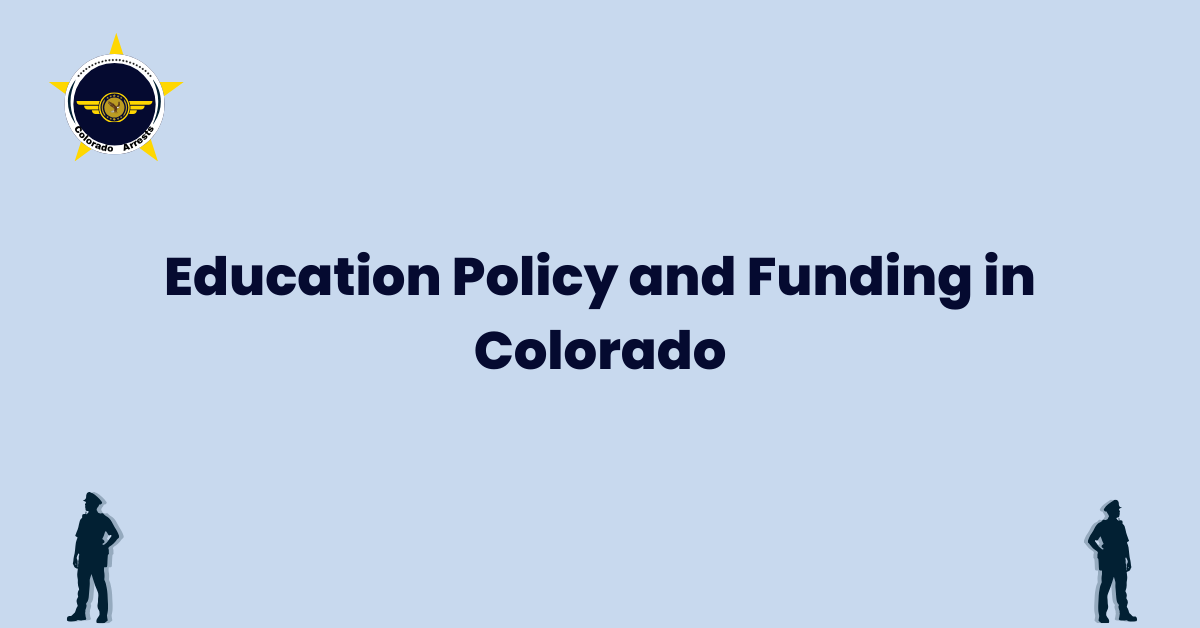Education Policy and Funding in Colorado
Education Policy and Funding in Colorado sets the stage for a comprehensive exploration of the educational landscape in this diverse and dynamic state. As one of the key pillars of society, education shapes the future of our communities and individuals. Understanding the policies and funding mechanisms that drive Colorado’s education system is crucial for students, parents, educators, and policymakers alike.
In this informative guide, we will delve into the intricacies of education policy in Colorado, examining the various laws and regulations that govern the state’s schools. We will explore how these policies impact funding decisions, resource allocation, and educational outcomes. By shedding light on these critical issues, we aim to empower readers with the knowledge and insights needed to actively participate in shaping the future of education in Colorado.
Exploring Education Policy in Colorado
As we delve deeper into the educational landscape of Colorado, it is essential to understand the policies that shape and govern the state’s schools. Education policy plays a crucial role in determining the quality of education and the opportunities available to students. By examining these policies, we can gain insights into the factors that influence funding decisions, resource allocation, and ultimately, the educational outcomes in Colorado.
The Importance of Policy in Education
Education policy is not simply a set of rules and regulations. It is a framework that guides the development and implementation of educational programs, ensuring that all students have equal access to quality education. These policies address various aspects, including curriculum standards, assessment methods, teacher qualifications, and accountability measures.
Impacting Funding Decisions
One of the critical ways in which education policy influences the educational landscape in Colorado is through funding decisions. Policies determine how funds are allocated across different schools, districts, and programs. By examining these policies, we can gain a better understanding of the funding mechanisms in place and their impact on resource availability and educational opportunities.
Resource Allocation_ Ensuring Equity
Equitable resource allocation is a key goal of education policy in Colorado. Policies aim to ensure that all students, regardless of their background or location, have access to the necessary resources for a quality education. This includes not only financial resources but also technology, facilities, and support services.
Promoting Educational Outcomes
The ultimate goal of education policy is to improve educational outcomes for all students. Policies are designed to address achievement gaps, enhance graduation rates, and foster a culture of continuous improvement. By examining the policies in place, we can gain insights into the strategies being pursued to ensure that Colorado’s students receive a well rounded and rigorous education.
Empowering Stakeholders
Understanding education policy in Colorado is crucial for students, parents, educators, and policymakers alike. By shedding light on the intricacies of these policies, we aim to empower readers with the knowledge and insights needed to actively participate in shaping the future of education in Colorado. Together, we can work towards creating a system that provides every student with the opportunities they deserve.
FAQs
What is the role of education policy in Colorado?
Education policy in Colorado plays a crucial role in shaping the educational landscape of the state. It encompasses a wide range of laws and regulations that govern various aspects of the education system, including curriculum standards, assessment practices, teacher licensure, and accountability measures.
How are education policies developed in Colorado?
Education policies in Colorado are developed through a collaborative process involving various stakeholders, including policymakers, educators, parents, and community members. These policies are often guided by research, best practices, and input from experts in the field of education.
What are the key funding mechanisms for Colorado’s education system?
Colorado’s education system is primarily funded through a combination of state and local sources. The state provides funding through a formula that takes into account factors such as student enrollment, district size, and student needs. Local funding is generated through property taxes and other local revenue sources.
How does education policy impact resource allocation in Colorado?
Education policy in Colorado influences how resources, such as funding, personnel, and technology, are allocated across schools and districts. Policies may prioritize certain areas of need, such as low income communities or students with disabilities, to ensure equitable access to resources and opportunities.
What is the relationship between education policy and educational outcomes in Colorado?
Education policy in Colorado has a direct impact on educational outcomes, such as student achievement, graduation rates, and college readiness. Policies that focus on high standards, effective teaching practices, and targeted interventions can contribute to improved outcomes for students.
How can individuals and communities participate in shaping education policy in Colorado?
Individuals and communities in Colorado can actively participate in shaping education policy by staying informed about current issues, attending public meetings and hearings, contacting elected officials, and engaging in advocacy efforts. By voicing their perspectives and concerns, they can contribute to the development of effective and equitable education policies.







